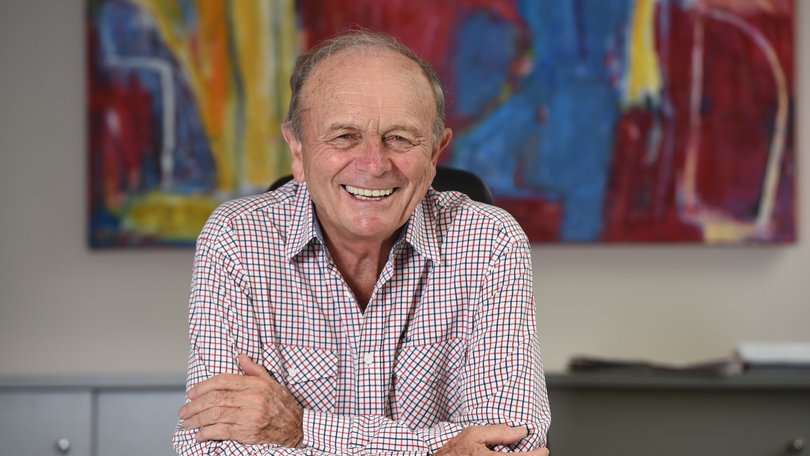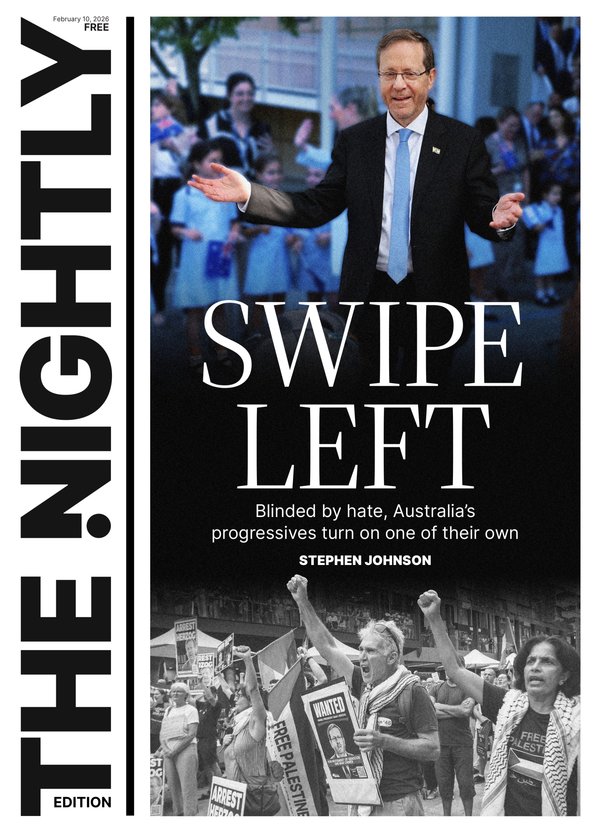Harvey Norman chair Gerry Harvey says Australia’s red tape ‘getting worse and worse’
Veteran retailer Gerry Harvey has gone on an extraordinary spray about the nation’s excessive red tape that he says is choking the economy and seemingly getting ‘worse and worse’.

Veteran retailer Gerry Harvey has gone on an extraordinary spray about the nation’s excessive red tape that he says is choking the economy and seemingly getting “worse and worse”.
The Harvey Norman chair on Friday said it was “dreadful out there” when asked about the nation’s flagging productivity growth, and pointed to the “many obstacles” that made it “hard to make something in Australia or build something in Australia”.
“Every government, every time they come in, everyone is worse than the one before because they talk about affordable housing, they talk about less regulation but they go in the opposite direction,” he told The Nightly.
Sign up to The Nightly's newsletters.
Get the first look at the digital newspaper, curated daily stories and breaking headlines delivered to your inbox.
By continuing you agree to our Terms and Privacy Policy.“They never ever deliver on what they promised . . . doesn’t matter (if it’s) Liberal, Labor, Greens, they’re all bad.
“People just can’t afford to buy a house, they’re just too damn expensive and they’re not going to get cheaper, they’re just going to keep going up and up in price.”
Asked if workers would benefit from productivity gains by moving towards a four-day week — which the Australian Council of Trade Unions has called for — Mr Harvey said: “No, no, no they need an eight-day week to lift productivity”.
It comes a week after Treasurer Jim Chalmers wrapped up a three-day economic reform summit, where attendees debated how to lift Australia’s productivity.
The comments came as Harvey Norman delivered a $165.56 million, or 47 per cent, lift in full-year profit to $518m as group sales across the eight countries it operated in rose 5.5 per cent to $9.35 billion.
It sent Harvey Norman shares soaring to an all-time high of $7.09 in morning trade. The stock closed 11.49 per cent higher at $6.89.
The 85-year-old billionaire businessman, who has been in retail for over 60 years, said the sales were stronger than expected.
“That’s telling you that the market out there is quite strong, at least in our category,” Mr Harvey said.
“The top third of the population that own their homes, they’ve never been richer, their houses have gone up 50 or 100 per cent in five or 10 years.
“The ones that are screwed are the ones paying rent and they’re the bottom third.”
Mr Harvey said it was the top two thirds of the population that were coming through his doors and purchasing the thousand-dollar furniture and TVs.
“We’re a brand product . . . a lot of retailers go off and sell unbranded product because they’re looking for more margin, we’ve never gone down that path,” he said.
Also helping the major homewares, electronics and white goods retailer’s result was consumers wanting to upgrade to artificial intelligence-led devices.
“The big thing that we’ve got going for us is the AI revolution at the moment,” Mr Harvey said.
“We’ve got people coming into our stores all the time, either buying or seeking information, on AI because they’re looking at it and thinking to themselves, ‘I’ve got to keep up to date’.”
Mr Harvey said AI was now extending into lounge and bedroom furniture.
The group’s performance was led by its 195 franchisee-run stores in Australia, where sales lifted 6.1 per cent to $6.43b in 2025.
Sales in New Zealand grew 1.6 per cent, while it was up 4.9 per cent in Slovenia and Croatia and 5.9 per cent higher in Ireland.
Mr Harvey said the strong momentum continued into the new financial year, with total sales growing 9.9 per cent for July compared with a year ago.
“The momentum across our overseas company-operated stores in FY25 has continued into FY26, with sales for July 2025 rising strongly against the prior corresponding period,” he said.
Harvey Norman’s total assets surpassed $8b for the first time at June 30, thanks to its $4.53b freehold property portfolio.
It declared a final dividend of 14.5¢ per share.

